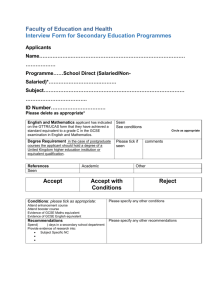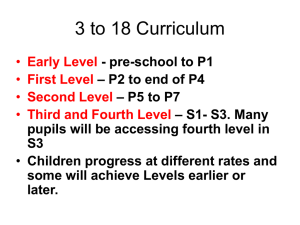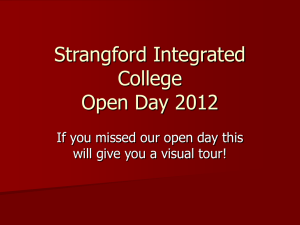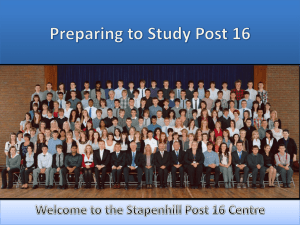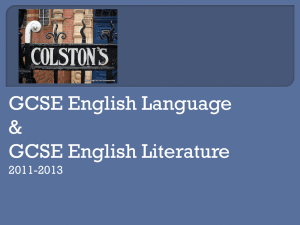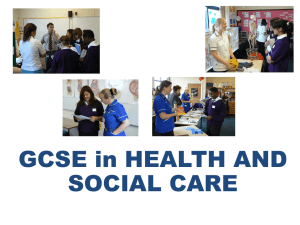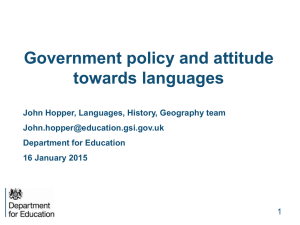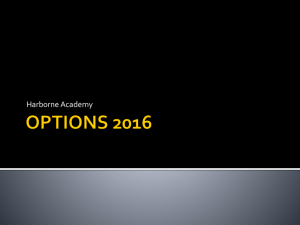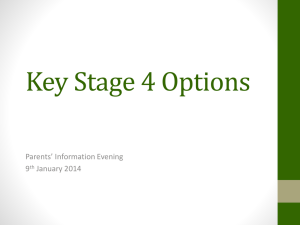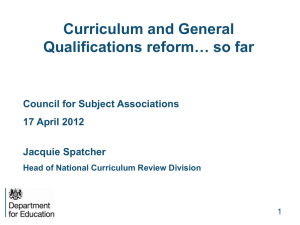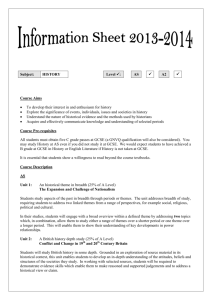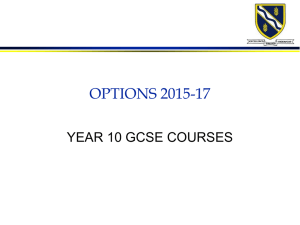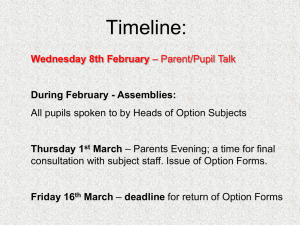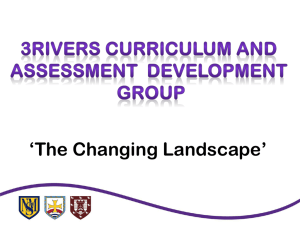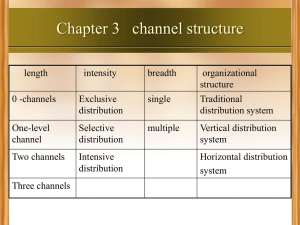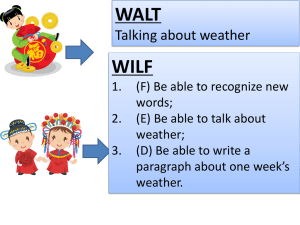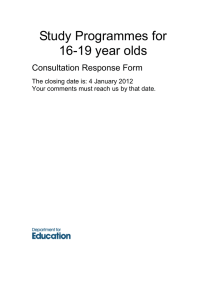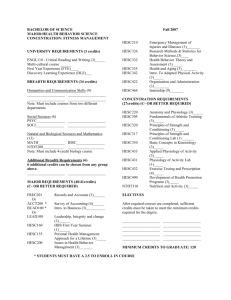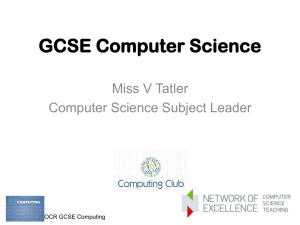crpf - King`s School
advertisement
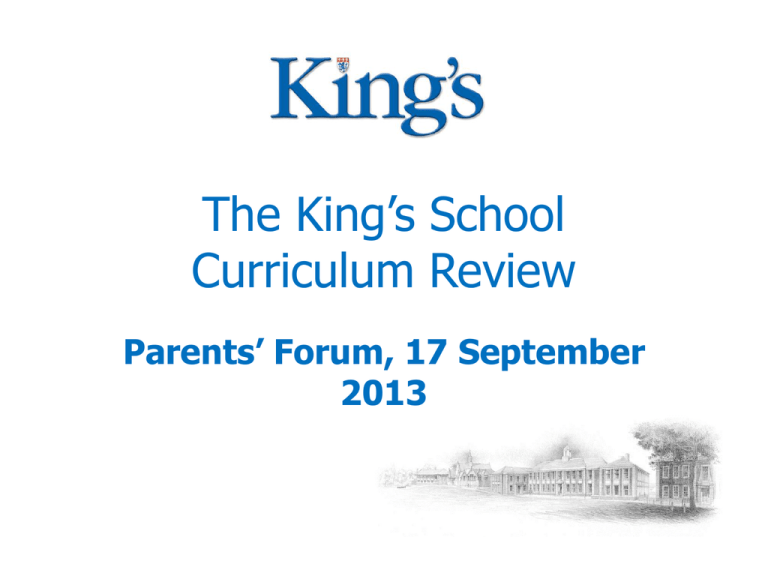
The King’s School Curriculum Review Parents’ Forum, 17 September 2013 Why a new curriculum? • It’s about time! • A changing educational and employment landscape • We want to ensure that we are offering the best possible academic education and preparation for work and lifelong learning skills The journey so far January 2013: staff consultation February–April: working party meetings February – April: parental consultation May – June: research and SMT discussion June 2013: draft curriculum published June/July 2013: further staff consultation October 2013: further parental consultation and presentation to the Education Committee • September 2014: implementation • • • • • • • Key Principles • A refinement rather than a revolution • to ‘challenge pupils to aspire, work hard and achieve’ and ‘to develop lively and enquiring minds’; • to ‘develop a distinctive King’s curriculum that provides breadth with academic challenge and makes independent learning a reality.’ • a range of subjects to ensure breadth of knowledge • greater opportunity for developing key learning and thinking skills and the ability to study independently. • a more efficient and streamlined curriculum, whilst still allowing choice A Thinking Curriculum • ‘Critical Thinking’ as a separate subject in Years • • • • 7 and 8; ‘Philosophy for Children’ taught through Religion and Philosophy and Drama ‘Let’s Think in Science’ Building Learning Power across the curriculum – building on the work in the Infant and Junior school Individual projects to encourage independent study in Year 9 Critical Thinking • Develops higher order thinking skills • Requires students to be active learners rather than passive receivers • Education for life • Transferable skills • Provides an opportunity to develop ideas and explore a range of cultural, moral and spiritual issues • Requires students to express themselves with clarity and precision in speech and writing Years 7-9 • Increased contact time in all subjects, particularly the core subjects • Languages: the same experience in Year 7 (Latin, French with German and Spanish tasters) and then two options chosen from the four, to be studied in Year 8 and Year 9 • Creative subjects (Art, D and T, Drama, Music) as now: two chosen in Year 9 in preparation for GCSE • ICT given more time to complete the ECDL by the end of Y9 • Critical Thinking in Year 7 and Year 8 Years 10-11 (GCSE) • A more flexible approach allowing 9 or 10 GCSEs • GCSE Options designed to encourage breadth of study: managed choice • The same amount of time given to triple science and dual science • Compulsory options in MFL, Humanities, Creative and Technical and then a further option block to allow specialism • More contact time in the majority of subjects • No timetabled ICT for all (ECDL already completed) but the option of GCSE Computing. Years 12 and 13 (A Level) • Very similar to the current model in terms of time and subjects (subjects to stay the same) • Extended studies in y12 and y13 to allow greater breadth and more vocational subjects alongside academic subjects • PSHE and Activities sessions remain to ensure a breadth of experience • Further Maths to be in the option blocks The New School Day 8.40 - 9.00 Registration/tutor time 9.00 - 9.50 Period 1 (50) 9.55 - 10.50 Period 2 (55) 10.50 - 11.10 BREAK 11.10 - 12.00 Period 3 (50) Period 4 (55) (Year 7 and 8 early lunch at 12.55) 12.05 - 1.00 1.00- 2.00 LUNCH 2.00 - 2.50 Period 5 (50) 2.55 – 3.50 Period 6 (55) What are the benefits? • • • • • • • • Greater contact time and greater frequency of lessons A breadth of subjects and managed choice A stronger focus on thinking skills and independent study A more flexible approach to GCSE to respond to pupils’ needs and the opportunity to study for 10 GCSEs ECDL to be taken earlier in Key Stage Three GCSE Computing and Critical Thinking as new subjects A better shape to the day within a similar framework Extended Studies in Year 12 to develop wider skills What do you think? • Final parental consultation open until Friday, 11 October • Please let me know your thoughts and opinions, positive or negative, by letter or by e-mail. • There is a specific e-mail address for responses to the curriculum review, which is: curriculumreview@kingsmac.co.uk

